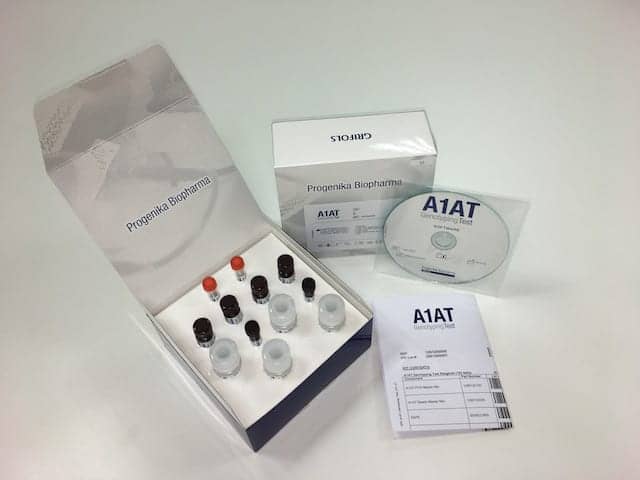Grifols, Barcelona, has received FDA approval for a new genetic test to detect alpha-1 antitrypsin deficiency (AATD). The authorization marks the first time FDA has approved a biological molecular test that uses the DNA of the patient for the diagnostic.
FDA has approved the test for DNA extracted from blood or from a drop of blood collected on paper. The A1AT genotyping test, developed by Progenika Biopharma, a Grifols subsidiary headquartered in Bilbao, Spain, is capable of simultaneously analyzing 99% of the most prevalent known mutations causing AATD.
The molecular test simultaneously analyzes 192 samples per kit and, in a single reaction, identifies 14 of the most prevalent known mutations in the SERPINA1 gene, responsible for this genetic disorder. Although classified as a high-complexity test under the terms of the Clinical Laboratory Improvement Amendments of 1988, the test has been designed so that any molecular biology laboratory can process it with minimal human intervention.
The test was previously granted the CE mark, in December 2016.
AATD is an inherited disorder that causes a deficiency or absence of the alpha-1 protein in plasma. It has a higher prevalence than other rare lung diseases such as cystic fibrosis and pulmonary arterial hypertension. While AATD symptoms vary depending on the degree of severity and type of genetic mutation, the most common symptom is a progressive loss of pulmonary function.




